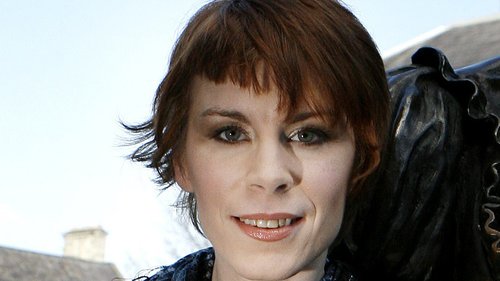Sometimes a modern fiction title emerges which generates more than the standard publisher hype. Some alchemy is at work in the application of critical appraisal upon popular taste and word-of-mouth recommendation. With the title’s reputation established, literary types suffer unease, if not shame, for having not read these acclaimed works. Examples are:
Orlando (1928) by Virginia Woolf, Tender is the Night (1934) by F. Scott Fitzgerald, I, Claudius (1934) by Robert Graves, Rebecca (1938) by Daphne du Maurier, The Heart is a Lonely Hunter (1940) by Carson McCullers, The Stranger (1942) by Albert Camus, The Talented Mr. Ripley (1955) by Patricia Highsmith, The Bell (1958) by Iris Murdoch, Things Fall Apart (1958) by Chinua Achebe, The Magus (1965) by John Fowles, Wide Sargasso Sea (1966) by Jean Rhys, The Master and Margarita (1967) by Mikhail Bulgakov, Gravity’s Rainbow (1973) by Thomas Pynchon, The World According to Garp (1978) by John Irving, The Name of The Rose by Umberto Eco (1980), Midnight’s Children (1981) by Salman Rushdie, Flaubert’s Parrot (1984) by Julian Barnes, Hotel du Lac (1984) by Anita Brookner, The Unbearable Lightness of Being (1984) by Milan Kundera, Oscar and Lucinda (1988) by Peter Carey, The Remains of the Day (1989) by Kazuo Ishiguro, Possession (1990) by A.S. Byatt, Sacred Hunger (1992) by Barry Unsworth, The Secret History (1992) by Donna Tartt, The English Patient (1992) by Michael Ondaatje, Birdsong (1993) by Sebastian Faulks, The Shipping News (1993) by Annie Proulx, Snow Falling on Cedars (1994) by David Guterson, Captain Corelli’s Mandolin (1994) by Louis de Bernieres, The Ghost Road (1995) by Pat Barker, A Fine Balance (1995) by Rohinton Mistry, Memoirs of a Geisha (1997) by Arthur Golden, Underworld (1997) by Don deLillo, American Pastoral (1997) by Philip Roth, Cold Mountain (1997) by Charles Frazier, The Poisonwood Bible (1998) by Barbara Kingsolver, The Hours (1998) by Michael Cunningham, Disgrace (1999) by J.M. Coetzee, The Blind Assassin (2000) by Margaret Atwood, The Shadow of the Wind (2001) by Carlos Ruiz Zafon, Atonement (2001) by Ian McEwan, Austerlitz (2001) by W.G. Sebald, The Sea (2005) by John Banville, The Elegance of the Hedgehog (2006) by Muriel Barbery, The Road (2006) by Cormack McCarthy, The Secret Scripture (2008) by Sebastian Barry, The Suspicions of Mr Whicher (2008) by Kate Summerscale, All The Light We Cannot See (2014) by Anthony Doerr, The Sense of an Ending (2011) by Julian Barnes. Each of these illustrates how the modern novel can be elevated above entertainment. Each managed to achieve critical praise and popular sales. A recent candidate for this category is The Wych Elm (2019) by Tana French.
The debut novel of Tana French (http://www.tanafrench.com/) (https://en.wikipedia.org/wiki/Tana_French) was In the Woods (2007). Twelve years later with numerous awards and global sales of more than 5 million copies, she’s established herself as one of the most talented and ambitious crime writers. Her series of police procedurals has explored social hierarchies, particularly in post-crash Ireland.
The summary of The Wych Elm is as follows. Toby Hennessey has been lucky in life. Twenty something with an adoring girlfriend, privileged background, plum job doing PR for an art gallery, and a sense of entitlement. But one night changes everything for Toby. A brutal attack by masked intruders leaves him damaged and traumatised, unsure even of the person he used to be. He seeks refuge at his family’s ancestral home in Dublin, the Ivy House, filled with memories of wild-strawberry summers and teenage parties with his cousins.
But not long after this retreat, a discovery is made: a skull, tucked neatly inside the old wych elm in the garden. As detectives begin to close in, Toby is forced to examine everything he thought he knew about his family, his past, and himself. French teases out the web of connections between the occurrences with great narrative craft and style. As the tale unfolds Toby is forced to confront the blind spots in his sunshine life before the burglary: how the blessings of birth, class and gender have protected him all his life, from school bullying, from social oppression, from the drudgery most of us endure.
French’s descriptive powers are well displayed and complement her investigation about the relationship between self and the world. Questions may be left troubling you from this intriguing novel: how much do each of us have to be be self-deceiving, even delusional, to be happy? How much do we have to shut out unsettling facts about the world? How much of our freedom and joy is necessarily predicated on past evil not of our choosing?
Check if this new psychological thriller is in stock at your local library by consulting the online catalogue here at https://www.sllclibrary.co.uk/cgi-bin/spydus.exe/MSGTRN/OPAC/BSEARCH
528 pages in Viking Press
First published 21 February 2019
ISBN 978-0241379509



